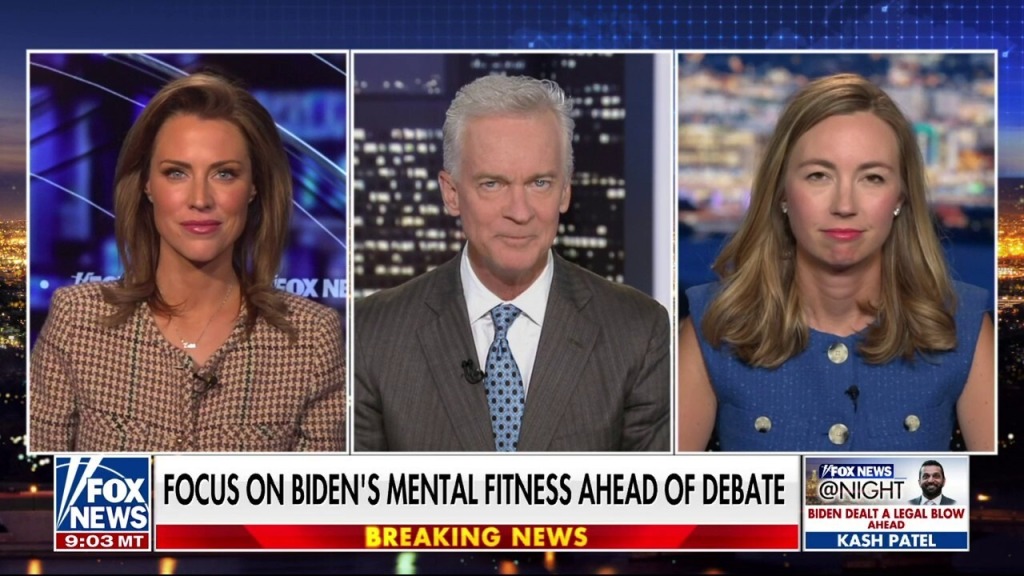Try to imagine this. A nation in which entities licensed to broadcast news or entertainment to the public were obligated to set aside a certain amount of their broadcast schedule to discuss controversial matters of public concern–and to do so in a way that included different perspectives.
Let’s say there was a television network called Really Good TV. To keep its broadcast license, RGTV created a regularly scheduled program called Really Important Stuff. And let’s also say there was a public controversy involving…I don’t know, maybe the overpopulation of parrots. RGTV’s Really Important Stuff show might do a segment in which people would discuss whether overpopulation of parrots was a critical issue, and if it was, how it might be handled. They’d include folks who very much enjoyed all the parrots and didn’t think it was a problem, and folks who totally fucking hated parrots and felt they should be poisoned at government expense, and folks who felt the best solution to parrot overpopulation was to allow them to be hunted for sport, and folks who felt parrots should be captured and neutered and released back into the city. Every main point of view would be included in the discussion, and viewers would be allowed to evaluate those positions and make up their own minds.
Reader, we actually used to live in that nation. We really did.
In 1927, Congress decided the agency that regulated federal communications (back then it was the Federal Radio Commission) should only issue broadcast licenses when doing so serves the public interest. Not private interests, not corporate interests, not the interests of the rich, not the interests of a particular political party. The public interest. In 1949, the Federal Communications Commission (which expanded the FRC to include television) created a policy that required the holders of broadcast licenses to 1) present controversial issues of public importance AND 2) to do so in a manner that fairly reflected differing viewpoints. It was called, appropriately, the Fairness Doctrine.
And hey, it worked. Television and radio stations were allowed to decide for themselves HOW to implement the doctrine; they could do it through news segments, or public affairs shows, or through editorials. Nor were the stations required to provide equal time for the various opposing views. But they had to devote some time to important public issues and they had to present contrasting viewpoints.
It didn’t always work smoothly, but it worked. In 1969, for example, the FCC yanked the broadcast license from WLBT television in Mississippi (an NBC affiliate station) because the station’s overtly segregationist politics shaped their decision to refuse to broadcast NBC’s coverage of the civil rights movement.

Think about that for a moment. A local NBC news station refused to show news coverage of the civil rights movement created by NBC–coverage of a nationally important topic–because the owners/staff of that local station opposed civil rights. That local station didn’t have to agree with the coverage (and clearly, they didn’t; WLBT broadcast the Citizens’ Council Forum, a syndicated series of fifteen-minute interviews with segregationists). But they needed to present the issue fairly to their audience, about half of which was Black. When the station refused, the FCC punished them by taking away their broadcast license.
It was a powerful statement by the government that important public issues broadcast on public airwaves needed to be addressed fairly, and that meant including differing perspectives held by the public.
What happened to the Fairness Doctrine? One of the two dominant political parties felt oppressed by having to present opposing points of view. Care to guess which one?
President Ronald Reagan, in the mid-1980s, appointed three new commissioners to the FCC (the fourth had been appointed by Richard Nixon). They issued a report stating the Fairness Doctrine actually harmed the public interest by violating the 1st Amendment protection of free speech. Seriously. The FCC commissioners argued the free speech rights of political entities were diminished by requiring opposing views to be presented to the public. They voted unanimously to abandon the Fairness Doctrine.
Congress, believe it or not, disagreed with the FCC decision. It’s difficult to imagine now, given the current level of hyper-partisanship, but back then both houses of Congress, Republicans and Democrats alike, voted to enact the Fairness Doctrine into law (previously it had only been an FCC policy).
Not surprisingly, Reagan (who, again, engineered the destruction of the Fairness Doctrine) vetoed the legislation. Congress failed to overturn the veto. The FCC decision was implemented. By the summer of 1987, the Fairness Doctrine was dead. Dead as the Wicked Witch of the East–not only merely dead, but really most sincerely dead.
About a year later, in the summer of 1988, radio broadcaster Rush Limbaugh began his new radio show at WABC-AM in New York. In 1991, Democrats attempted to revive legislation to make the Fairness Doctrine law. That failed when President George H.W. Bush announced he would veto the law. In 1996, Rupert Murdoch and former Republican Party political strategist Roger Ailes launched Fox News.
Do the math.

Reagan/GOP’s evil plan also included eliminating (or greatly reducing) media ownership regulations, which allowed FOX, Sinclair, et al, to consolidate their right-wing hold on news sources.
LikeLiked by 1 person
Thank you Greg for bringing this up. It’s important for people to know the history of broadcast fairness and how we got to where we are today, and I think many don’t realize just how we (America) created our own problem.
My formative years were during the Reagan administration. I had a visceral dislike of Reagan at the time. Everything that I have learned since then has only reinforced that negative view, with your post being no exception.
LikeLiked by 1 person
A big thank you from me as well. I lived through all of this, but did not recall exactly how it all came down. I have often wondered what happened to news the way I knew it.
LikeLiked by 1 person